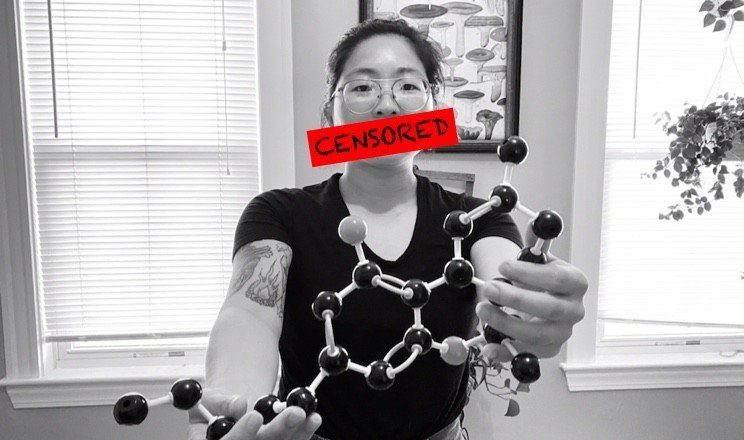Cannabis Stigma Leads To Isolation and Increased Risk of Harm In High-Needs Medical Patients
Published in Effective Cannabis Newsletter 12/11/24 (LINK to article)
The first time I inhaled that sweet cheeba was the first time I felt like my life could possibly, just maybe, with a lot of effort (and with a lot of weed), be doable. The quieting of my mind, the warmth from laughing until I cried, and the way the In N’ Out fries exploded in my cheeks left a lasting impression. But paired with that joyous experience was the gut-clenching panic and anxiety that I have always been somewhat prone to.
It wasn’t until halfway through my PhD that I approached my medical Cannabis use like a scientist. Through intentional trial and error, my understanding of my own endocannabinoid system and my medicine has been exponentially evolving every year. Now over 7 years later, my baseline dosing routine looks absolutely nothing like the first 11 years of my medical Cannabis use.
Looking Back Upon Those Difficult Years Is Always Painful
The deepest stab comes from how preventable a lot of it might have been if the information that I now hold in my head had been common knowledge back then. And it’s a twist of the knife to know that we still face many of the same barriers to education today. Prohibition has left the general public with minimal knowledge of the therapeutic validity or the best practices for medical Cannabis use.
Unfortunately, the situation is equally dismal in the healthcare system; most healthcare professionals have been exposed to only a tiny amount of information when it comes to Cannabis. Medical Cannabis still remains a niche specialty for a small sliver of medical professionals. They risk their professional careers and insurance to take a stand for their patients and respect their lived experiences. But the majority still holds a deep skepticism that creates boundaries and inequities in the healthcare experience of medical patients.
Any patient who has been diagnosed with a substance use disorder understands the true consequences of being identified as the source of the problem, a drug seeker, a complainer, a psychosomatic nutjob. On my last urgent care visit, the doctor searched my arms and behind my knees for track marks before offering me a prescription for an ulcer-inducing dosage of ibuprofen. I respectfully declined.
The alternative is to lie. But this is a no-win situation if our goal is to have a trusting relationship based on reciprocal respect for each other’s opinions, which includes the lived experience of medical Cannabis users. It seems to be a trend that the higher the dose of Cannabis needed for relief, the more stigma that is associated, and the less likely it is for the use to be viewed as medical. Additionally, smoking as a method of ingestion over any other method creates a compounding effect.
This discrimination against a large population of medical users leads to deep feelings of guilt and shame. This can result in abstaining from a dose schedule that could be beneficial overall, or in binge-like behaviors when the patient feels “allowed” to medicate. And potentially the most dangerous consequence is that it often results in an aversion to receiving any health care at all.
While Cannabis has become more accessible than ever before, we still face the wall of medical disapproval. The narrow window of extreme conditions that allow medical Cannabis use to be valid in the eyes of most medical professionals needs to be smashed open. We’ve been suffocating and we need a fresh perspective.
This New Perspective Must Start From The Seed of The System: Scientific Research
It is the fundamental role of science to explore and support advances in humanity for improved understanding of the universe. The bias that exists in current society has been crafted and supported by years of research that was interpreted within a framework that many stigmatized medicines will never fit into. And so we must create and share research opportunities outside of that framework.
Medical Cannabis use is valid. Daily, multiple-dose per day dosing schedules can still be medical and can still be valid. There are unique therapeutic benefits to Cannabis that have not yet been formally investigated, but that does not invalidate the relief experienced. It just means we have reached an edge and that we must investigate it further.
Reaching boundaries, pressing up against them, and testing their strength, is the first step in breaking them, and I am optimistic about our collective and building momentum towards the other side.

